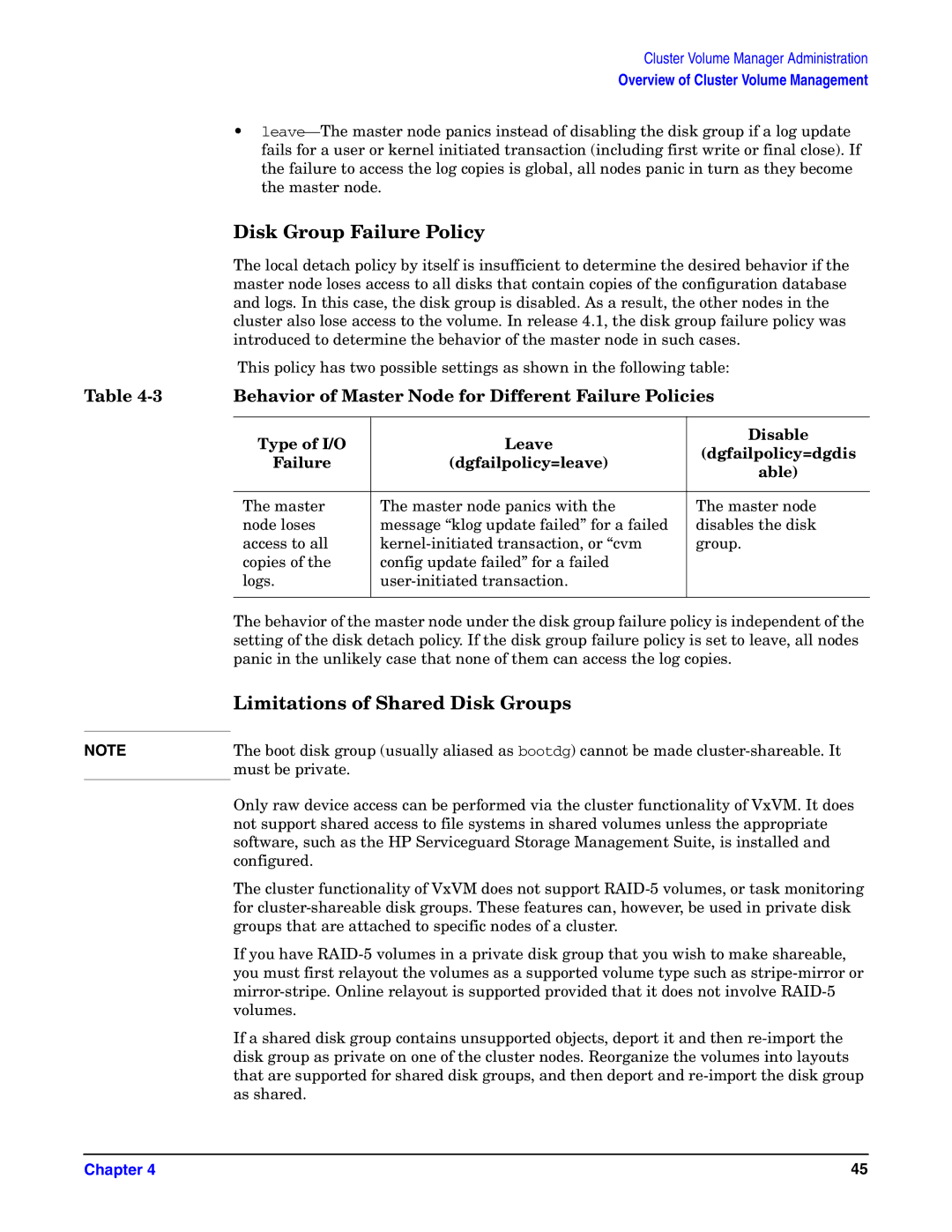Cluster Volume Manager Administration
Overview of Cluster Volume Management
•
Disk Group Failure Policy
The local detach policy by itself is insufficient to determine the desired behavior if the master node loses access to all disks that contain copies of the configuration database and logs. In this case, the disk group is disabled. As a result, the other nodes in the cluster also lose access to the volume. In release 4.1, the disk group failure policy was introduced to determine the behavior of the master node in such cases.
This policy has two possible settings as shown in the following table:
Table | Behavior of Master Node for Different Failure Policies | ||
|
|
|
|
| Type of I/O | Leave | Disable |
| (dgfailpolicy=dgdis | ||
| Failure | (dgfailpolicy=leave) | |
| able) | ||
|
|
| |
|
|
|
|
| The master | The master node panics with the | The master node |
| node loses | message “klog update failed” for a failed | disables the disk |
| access to all | group. | |
| copies of the | config update failed” for a failed |
|
| logs. |
| |
|
|
|
|
The behavior of the master node under the disk group failure policy is independent of the setting of the disk detach policy. If the disk group failure policy is set to leave, all nodes panic in the unlikely case that none of them can access the log copies.
| Limitations of Shared Disk Groups |
|
|
NOTE | The boot disk group (usually aliased as bootdg) cannot be made |
| must be private. |
| Only raw device access can be performed via the cluster functionality of VxVM. It does |
| not support shared access to file systems in shared volumes unless the appropriate |
| software, such as the HP Serviceguard Storage Management Suite, is installed and |
| configured. |
| The cluster functionality of VxVM does not support |
| for |
| groups that are attached to specific nodes of a cluster. |
| If you have |
| you must first relayout the volumes as a supported volume type such as |
| |
| volumes. |
| If a shared disk group contains unsupported objects, deport it and then |
| disk group as private on one of the cluster nodes. Reorganize the volumes into layouts |
| that are supported for shared disk groups, and then deport and |
| as shared. |
Chapter 4 | 45 |
